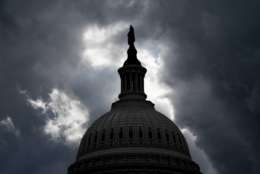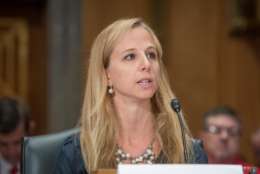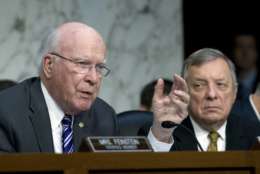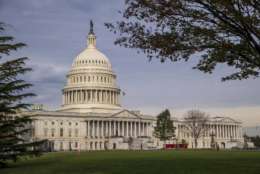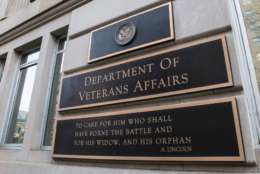Pay
-
Telling people they can’t work but will eventually get paid during the biggest shopping season of the year doesn’t make sense to a lot of folks. Except in Washington, where the people who make government shutdown decisions are exempt from shutdown rules.
December 17, 2018 -
Congress has less than a week before funding for some federal agencies expires on Dec. 21. Will the government close? Will federal employees get a pay raise in 2019? There are many possibilities and few clear answers.
December 14, 2018 -
No one is getting rich from the 1.9 percent raise likely to come feds' way next year, but is giving everyone the same percentage raise the right approach after all?
December 14, 2018 -
In today's Federal Newscast, Senate Democrats said more than 300,000 federal employees will be furloughed if Congress can't come to a deal on seven remaining appropriation bills.
December 13, 2018 -
Congress is considering whether to give feds a 1.9 percent pay raise in January. And the president has yet to decide or at least announce his decision whether to give nonemergency federal workers a bonus holiday on Christmas Eve.
December 13, 2018 -
Could the likelihood of a government shutdown or a coast-to-coast barrier depend on what we the U.S. decide to call it? Some so-called Washington experts think it might work.
December 12, 2018 -
The Office of Personnel Management finalized six new locality pay areas for some 71,000 federal employees in 2019.
December 04, 2018 -
In today's Federal Newscast, officials with the Defense Department's Office of Inspector General said they’ve had much more success with a new alternative dispute resolution process.
December 04, 2018 -
Members of the military who joined before Jan. 1, 2018, only have until the end of the year to join the blended retirement system.
December 04, 2018 -
Federal employees who are typically scheduled for an eight-hour day on Wednesday, Dec. 5 will be excused from work and will get paid for the time off, according to new OPM guidance.
December 03, 2018 -
Before the end of 2018, Congress needs solutions for seven unfinished appropriations bills, plus a definitive answer on federal employee pay.
November 26, 2018 -
The Department of Veterans Affairs said it is realigning the health administration to comply with the president's reorganization executive order.
November 26, 2018 -
Federal retirement systems, CSRS and FERS, have been under attack for several years, primarily because a group of House Republicans wanted to make the FERS program less costly to taxpayers and less beneficial to its retirees.
November 23, 2018 -
Even if you have an overall good health plan — such as one of the FEHBP options — the most important thing is its catastrophic coverage.
November 19, 2018 -
Landing half of the new Amazon HQ2 operation has even the most sophisticated inside-the-Beltway person paying attention. More than 25,000 new jobs averaging salaries of $150,000 per annum is a big deal.
November 16, 2018


